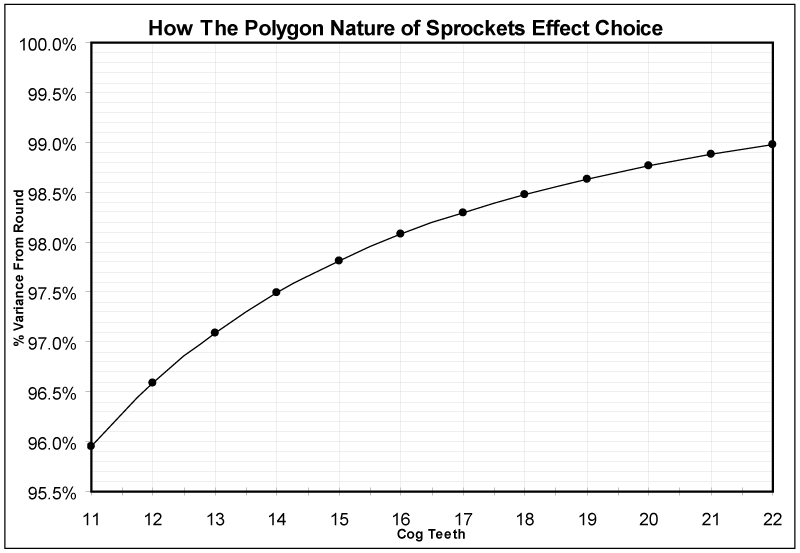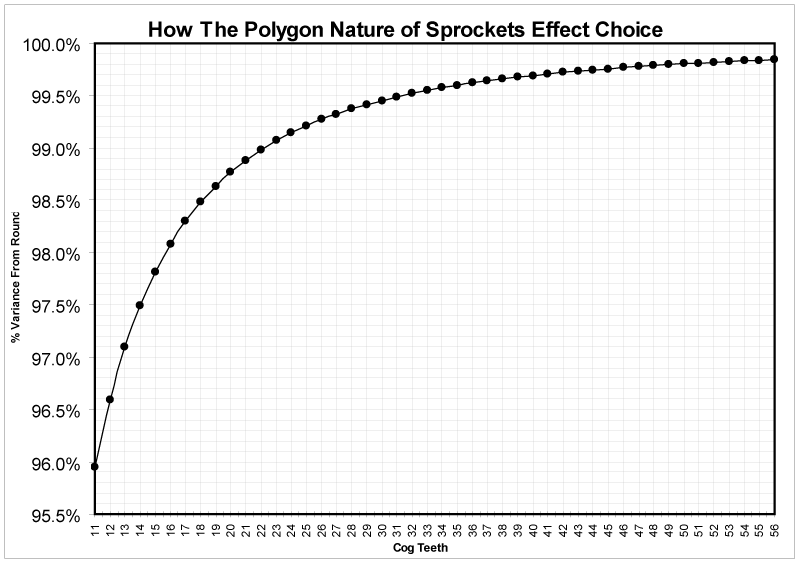Difference between revisions of "Choosing a Small Sprocket"
From Pvdwiki
(→See Also) |
|||
| Line 17: | Line 17: | ||
[[Image:Cog-Variance-from-round-all.gif]]<br> | [[Image:Cog-Variance-from-round-all.gif]]<br> | ||
==See Also== | ==See Also== | ||
| − | http://www.mathwords.com/a/area_regular_polygon.htm | + | http://www.mathwords.com/a/area_regular_polygon.htm<br> |
| + | http://www.mathopenref.com/polygonregulararea.html<br> | ||
[[category:Bicycle]] | [[category:Bicycle]] | ||
Latest revision as of 17:31, 27 October 2007
Chain Sprockets are effectively regular polygons. Because of this, when the small sprocket is pulling the chain a pulse is created in the system.
It is important not to choose a sprocket too small for the smoothest power transfer.
Most engineering manuals suggest that 17 teeth be a minimum for high speed systems.
This graph shows how the lower leverage postion compares to the higher leverage postion as the sprocket rotates. (pitch /(2*TAN(PI()/ teeth ))) / (pitch /(2*SIN(PI()/ teeth )))
More Info
For comparison purposes, here are many of the common bicycle and motorcycle sprockets.
See Also
http://www.mathwords.com/a/area_regular_polygon.htm
http://www.mathopenref.com/polygonregulararea.html

